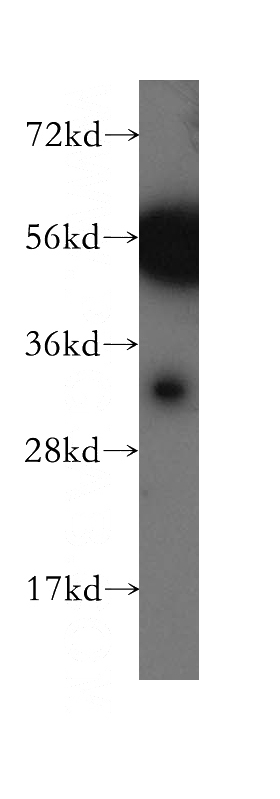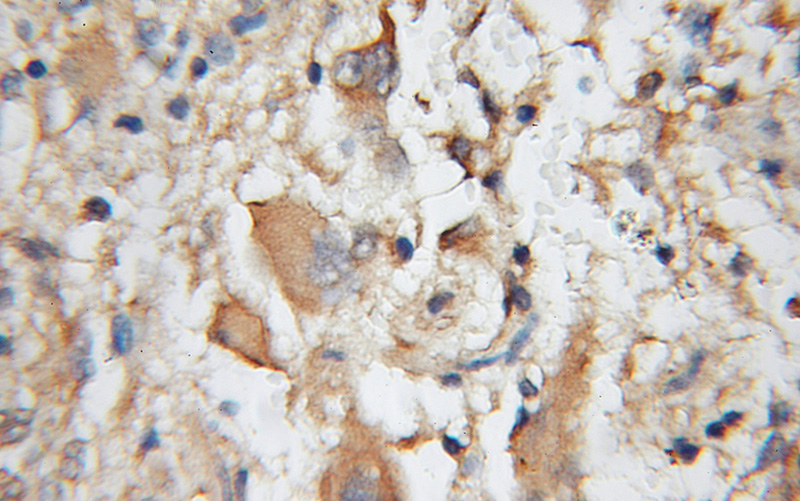-
Product Name
CA8 antibody
- Documents
-
Description
CA8 Rabbit Polyclonal antibody. Positive IHC detected in human gliomas tissue. Positive IP detected in mouse brain tissue. Positive WB detected in mouse skeletal muscle tissue, mouse brain tissue. Observed molecular weight by Western-blot: 32 kDa
-
Tested applications
ELISA, WB, IHC, IP
-
Species reactivity
Human,Mouse,Rat; other species not tested.
-
Alternative names
CA VIII antibody; CA8 antibody; CALS antibody; carbonic anhydrase VIII antibody; CARP antibody
-
Isotype
Rabbit IgG
-
Preparation
This antibody was obtained by immunization of CA8 recombinant protein (Accession Number: BC015531). Purification method: Antigen affinity purified.
-
Clonality
Polyclonal
-
Formulation
PBS with 0.1% sodium azide and 50% glycerol pH 7.3.
-
Storage instructions
Store at -20℃. DO NOT ALIQUOT
-
Applications
Recommended Dilution:
WB: 1:200-1:2000
IP: 1:500-1:5000
IHC: 1:20-1:200
-
Validations

mouse skeletal muscle tissue were subjected to SDS PAGE followed by western blot with Catalog No:108752(CA8 antibody) at dilution of 1:500

Immunohistochemical of paraffin-embedded human gliomas using Catalog No:108752(CA8 antibody) at dilution of 1:100 (under 10x lens)

IP Result of anti-CA8 (IP:Catalog No:108752, 4ug; Detection:Catalog No:108752 1:1000) with mouse brain tissue lysate 4000ug.
-
Background
The CA8 (CARP) gene encodes carbonic anhydrase VIII, which is part of a family of zinc metalloenzyme. CA8 has a central carbonic anhydrase motif, but it lacks carbonic anhydrase activity due to absence of catalytic zinc coordinating residues(PMID:2121526). CARP is a novel IP3R1-binding protein, and is expressed in Purkinje cells abundantly. CA8 is co-localized with IP3R1 in Purkinje cells and it binds to IP3R1, reducing the affinity of the receptor for its ligand, IP3(PMID:12611586). Defects in CA8 are the cause of cerebellar ataxia mental retardation and dysequilibrium syndrome type 3 (CMARQ3)(PMID:19461874).
-
References
- Liddelow SA, Dziegielewska KM, Ek CJ. Mechanisms that determine the internal environment of the developing brain: a transcriptomic, functional and ultrastructural approach. PloS one. 8(7):e65629. 2013.
Related Products / Services
Please note: All products are "FOR RESEARCH USE ONLY AND ARE NOT INTENDED FOR DIAGNOSTIC OR THERAPEUTIC USE"
